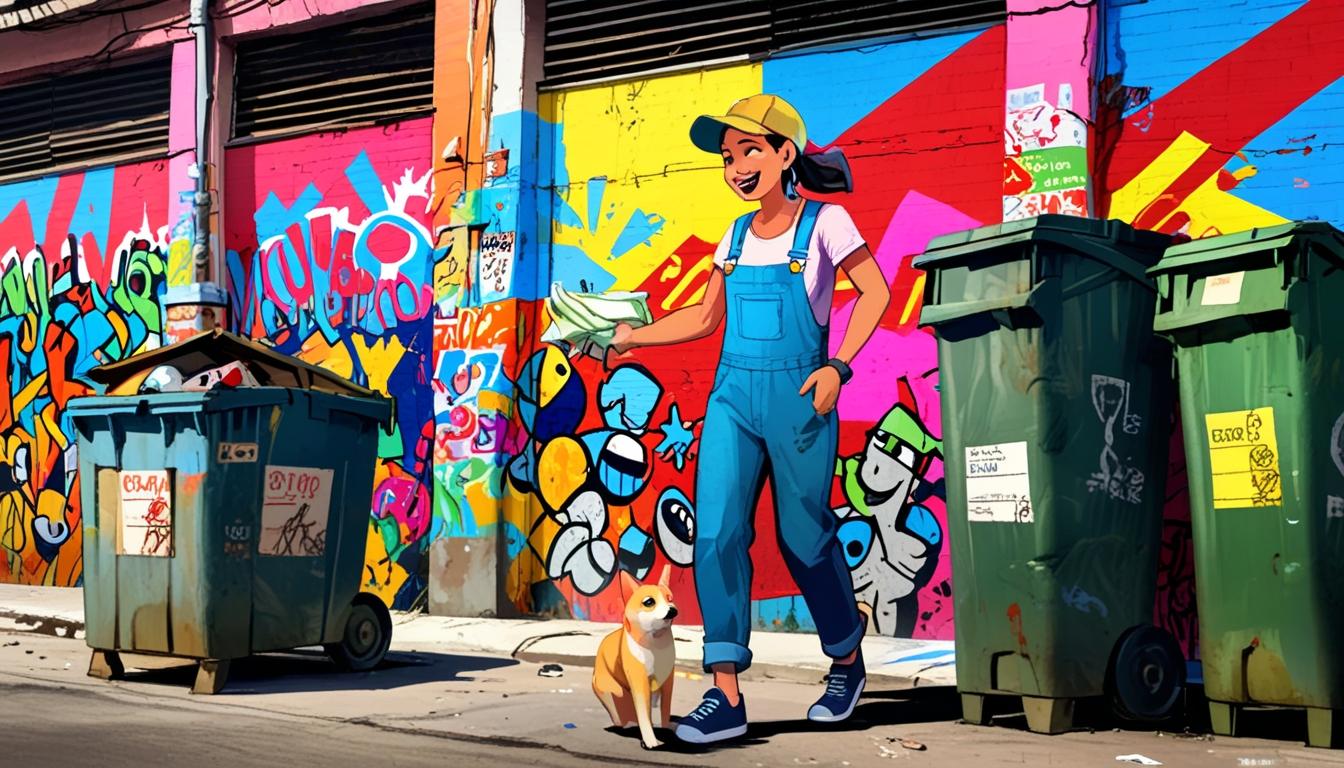Sara Samaniego uses her social media influence to raise awareness for the 74,000 informal waste pickers in Colombia, highlighting their crucial role in waste management.
Sara Samaniego has emerged as a prominent figure advocating for a group of 74,000 informal waste pickers in Colombia, a nation grappling with waste management challenges. The 32-year-old influencer uses her online platforms to shine a light on these individuals who sift through garbage daily to salvage recyclable materials, playing a critical role in a country where public recycling systems are virtually non-existent.
Samaniego, who adopts the persona “Marce, la recicladora,” engages her half-a-million Instagram followers with a blend of education and entertainment. Dressed in blue overalls and a backward baseball cap, she greets her audience with a cheerful “Hola mis recicla-amores!” (“Hello my recycling loves!”). Her work aims to expand public understanding of the recycling process and the essential contributions of waste pickers, who often work in hazardous conditions with minimal pay.
In Colombia, cities like Bogota produce approximately 9,000 tons of waste daily, with only 17 percent being recycled—an amount comparable to major cities like New York. The reliance on informal waste pickers to manage this waste is significant, as they sort through refuse to recover materials such as cardboard, glass, and plastics. Zoraya Avendano, a manager at a recycling warehouse, stated that Samaniego’s efforts encourage “people to understand the work of recyclers from the inside.”
Samaniego’s social media endeavors do not solely focus on awareness; they actively profile individual recyclers. For instance, Mary Luz Torres, 50, travels two hours daily from her home in a working-class neighborhood to conduct her work in wealthier areas of Bogota. She emphasizes the necessity of her job, stating, “You have to go out and find a way to make ends meet.” Her daily tasks reflect the harsh realities of a profession often looked down upon, as articulated by Pedro Talero, 55, who recycles trash at night and earns about $20 on good days. Talero noted that while some may hold disdain for their work, increased environmental consciousness is garnering more respect for their contributions.
Policy changes in Colombia also reflect a recognition of the value of waste pickers. President Gustavo Petro’s administration recently established a 15-year monopoly for informal recyclers on recycling operations, a move intended to lift many out of poverty and improve societal conditions. In his words, “If traditional informal recyclers are compensated, we lift many people out of poverty.”
Samaniego’s influence stems from her passion for the environment, which developed during childhood trips to the Colombian countryside. Her foray into environmental media began with a documentary project in college, leading her to launch her YouTube channel six years ago. Her approach mixes informative content with popular cultural elements, such as music from Colombian icons.
With her growing fame, Samaniego is frequently stopped in public for photos and has become a guest on television programs and an invited speaker at schools and businesses. She credits many of her insights to the recyclers she interacts with, whom she considers her teachers. To support them, she actively fundraises for equipment like safety gloves and face masks, and organizes outings to give them a break from their arduous daily routines.
“I’m fulfilling my goal of being an agent of change in the country,” Samaniego remarked, highlighting her commitment to championing the rights and needs of Colombia’s informal recyclers.
Source: Noah Wire Services




